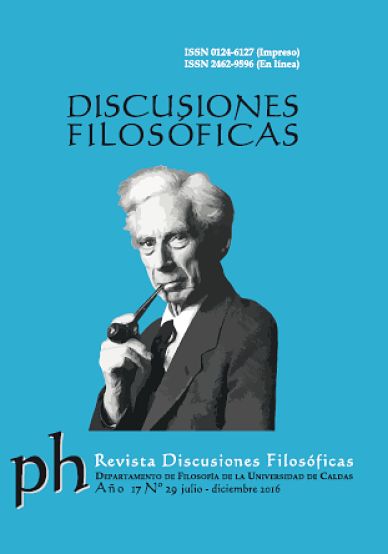Authors
Abstract
One hundred years after World War I, the old continent is again under a state of shock comparable to the one that preceded this cruel conflict. This paper analyzes how this confrontation came to acquire apocalyptic dimensions and, in this way, it warns us that we may be going on this path again. The thesis proposed here is that at least four aspects converged there, namely, 1. The nihilistic propensity of the West; 2. The "natural" perversion common to all human beings, which was long suppressed by the moralistic society of the nineteenth century and, with the outbreak of the Great War; 3. In the conflict of 1914, the spirit of war empathizes with the soul of progress, finally; 4. The fact that in this struggle and, for the first time, contemporary terrorism (atmoterrorism) plays a determining role. I present these reflections based on the previous ideas of thinkers such as Martin Heidegger, Sigmund Freud, Ernst Jünger, Peter Sloterdijk.
Keywords
References
Einstein, A. y Freud, S. ¿Por qué la Guerra? (Trad.) Bergalli, V., presentación Eligio Resta. Barcelona: Editorial Minúscula, 2001. Impreso.
Freud, S. Consideraciones de actualidad sobre la guerra y la muerte. En El malestar en la cultura, (Trad.) López L. y de Torres. Madrid: Alianza, 1988. Impreso.
Goethe, J. W. Fausto. (Trad.) Borrell, R. Madrid: Universidad de Puerto RicoRevista de Occidente, 1968. Impreso.
Grass, G. Lo que hay que decir. (Trad.) Sáenz, M. para El País internacional. Tomado del texto original del alemán publicado en el diario Süddeutsche Zeitung. En http://internacinal.elpais.com/internacional/2012/04/03/actualidad/133346-651515_731955.html (2012). Web. Fecha de consulta: 3, septiembre, 2014.
Hegel, G. W. F. Fundamentos de la filosofía del Derecho. (Trad.) Díaz, C. México: Siglo Veinte, 1993. Impreso.
___. Lecciones sobre filosofía de la historia universal. (Trad.) Gaos, J. Madrid: Alianza, 1985. Impreso.
Heidegger, M. “El Habla en el poema”. En De camino al habla. (Trad.) Zimmermann, Y. Barcelona: Ediciones del Serbal-Guitard, 1990. Impreso.
___. “La época de la imagen del mundo”. En Caminos de bosque. (Trad.) Cortés, H. y Leyte, A. Madrid: Alianza, 1996. Impreso.
___. Serenidad. (Trad.) Zimermann, Y. Barcelona: Ediciones del Serbal-Guitard, 1994. Impreso.
Jünger, E. Sobre el dolor. Seguido de la movilización total y Fuego y movimiento. (Trad.) Sánchez P., A. México D. F: Tusquets, 2008. Impreso.
Losurdo, D. La comunidad, la muerte, occidente. Heidegger y la “ideología de guerra”. (Trad.) Bonanno, L., A. Buenos Aires: Losada, 2003. Impreso.
Nancy, J.-L. “Tres fragmentos sobre nihilismo y política”. En Nihilismo y política. (Trad.) Prósperi, G. Buenos Aires: Manantial, 2008. Impreso.
Reina, J. L. “La vida breve de Georg Trakl”. En Obras completas. (Trad.) Reina, J. L. Madrid: Trotta, 2000. Impreso.
Safranski, R. Un maestro de Alemania. Martin Heidegger y su tiempo. (Trad.) Gabás, R. Barcelona: Tusquets, 2000. Impreso.
Sánchez-Durá, N. “Black weather forecast for sunny days”. En Temblores de aire en las fuentes del terror. (Trad.) Cano, G. Valencia: Pre-textos, 2003. Impreso.
Sloterdijk, P. Temblores de aire en las fuentes del terror. (Trad.) Cano, G. Valencia: Pre-textos, 2003. Impreso.
Trakl, G. Obras completas. (Trad.) Reina, J. L. Madrid: Trotta, 2000. Impreso.

 pdf (Español (España))
pdf (Español (España))
 FLIP
FLIP




























